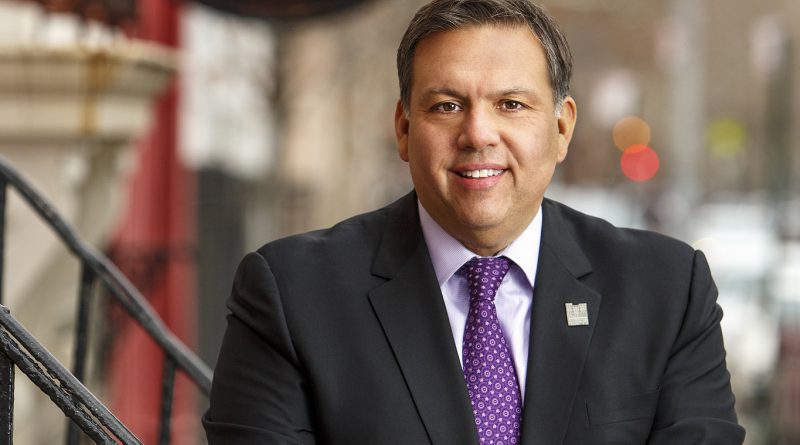A Deep and Meaningful Partnership
Henry Street Settlement, on the Lower East Side of Manhattan, is a household name with the area’s residents. The Settlement was founded in 1893 by Lillian Wald, nurse, humanitarian, public health pioneer, and the namesake of Lillian Wald Houses in the East Village. The Settlement provides a wide range of programs at its 17 locations on the Lower East Side and throughout the five boroughs to more than 60,000 New Yorkers a year. Services include housing, senior programs, youth programs, workforce development, health and wellness services, a neighborhood resource center, and arts programming. Working closely with its neighbors, the Settlement works to help families create better lives for themselves and their children.
David Garza joined Henry Street Settlement in 2001 and has been Executive Director since 2010.
Q: In what ways does Henry Street work with NYCHA?
A: We have been inextricably linked with NYCHA since the developments were built in the 1930s and 40s.Our organization is 125 years old, so we were here literally from day one. Half of our organization is physically operated out of NYCHA developments. Our partnership is deep, authentic, and meaningful.
Q: How did Henry Street begin to operate in NYCHA buildings?
A: The settlement house model of service is based on delivering services where people need them. In each NYCHA location we deliver a very targeted, comprehensive service, and operating out of NYCHA helps extend that place-based quality in a critically important way.
Q: How has your partnership with NYCHA changed over the years?
A: Our relationship with NYCHA now extends past the brick and mortar. The fact that I’m on a first name basis with the NYCHA employees I work with speaks to the quality of the relationship. In regular day-to-day operations, in special collaborations and targeted efforts, and in exceptional circumstances, our relationship with NYCHA functions well at all levels. We carry out very similar missions and services because we serve the same people.
Q: Moving forward, what can people do to make sure NYCHA residents are better served?
A: Like NYCHA is doing in the community to roll out NextGen, I think what communities can do is really to continue focus on engagement of residents and people that live in the community and care about the community to create appropriate for that conversation and for issues to be identified. We have a deep commitment to community engagement at Henry Street.
Q: Who works at Henry Street?
A: People who work in the nonprofit sector and people that work are Henry Street are not here for the money. They are here because of a deep commitment to helping their neighbors, helping their communities, and helping individuals lead better lives. Nobody is more effective in delivering human services then the people that actually live in the neighborhood you serve.

